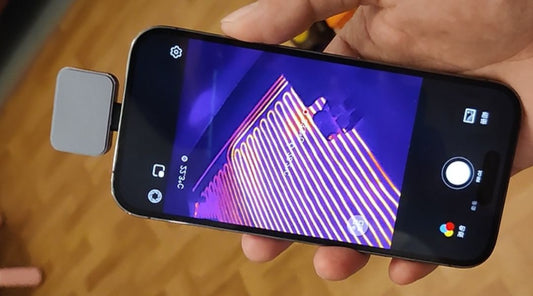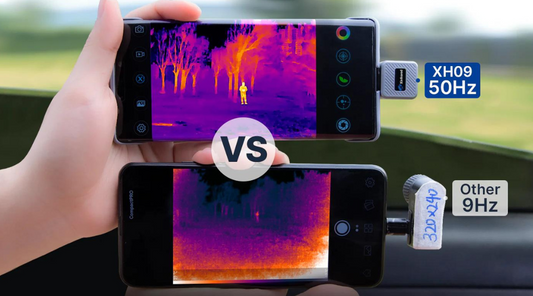3 Must-Have for PCB Inspection and Repair
In the world of electronics, printed circuit boards (PCBs) are the unsung heroes that power our devices. Whether it's your smartphone, laptop, or any electronic gadget, PCBs are at the heart of their functionality. Given their critical role, it's essential to ensure that PCBs are in perfect working condition. In this blog post, we'll discuss the three must-have tools for PCB inspection and repair, and why they're crucial in maintaining the reliability of your electronic devices
Must-Have #1: Thermal Cameras
When it comes to PCB inspection and repair, thermal cameras are an indispensable tool. These cameras work on the principle of infrared imaging, enabling them to detect temperature variations and anomalies on the board. Here's why they are a must-have:
- Detecting Temperature Anomalies: Thermal cameras are incredibly adept at spotting hotspots or areas of abnormal temperature. These hotspots often indicate potential issues, such as overheating components or electrical faults. Identifying these problems early can prevent major malfunctions and extend the life of your electronics.
- Precise Troubleshooting: Using thermal cameras allows technicians to pinpoint problematic areas with high accuracy. This aids in efficient troubleshooting and quicker repairs, saving both time and resources.
-
Selecting the Right Thermal Camera: When choosing thermal imaging for PCB work, consider factors like resolution, sensitivity, and compatibility with different PCB sizes and materials. The right camera can make all the difference in the quality of your inspections.

Must-Have #2: Multimeter and Oscilloscope
Multimeters and oscilloscopes are versatile tools used for measuring electrical properties and analyzing waveforms. They play a vital role in PCB inspection and repair, and here's why they are essential:
- Accurate Measurements: Multimeters provide precise measurements of voltage, current, and resistance. These measurements are critical for ensuring proper electrical performance in PCBs. They help in detecting short circuits, open circuits, and voltage irregularities.
- Signal Analysis: Oscilloscopes are particularly valuable for analyzing waveforms and signals. They are used to detect signal distortions, frequency irregularities, and other issues related to electronic components. This is crucial in identifying and resolving problems in complex PCBs.
-
Selecting the Right Tools: Choosing the right multimeter and oscilloscope is crucial for accurate readings. Look for devices that match your specific needs and consider factors like bandwidth, sample rate, and probe options.

Must-Have #3: Soldering and Desoldering Equipment
Soldering and desoldering are techniques used to replace or repair components on a PCB. These techniques require specialized tools and equipment, and here's why they are indispensable:
- Temperature Control: Proper temperature control is essential when soldering or desoldering components on a PCB. The right temperature ensures that sensitive components aren't damaged during the process, and that connections are secure and reliable.
- Versatility: Different PCB scenarios may require different soldering techniques. Surface mount (SMD) soldering is used for smaller components, while through-hole soldering is necessary for larger ones. Having the right soldering equipment allows you to work with a wide range of components.
-
Soldering Best Practices: It's essential to follow best practices when soldering and desoldering. This includes using the right soldering iron, using flux for better solder flow, and avoiding overheating to prevent damage to PCB traces.

Ensuring the reliability of your electronic devices through PCB inspection and repair is of utmost importance. The three must-have tools mentioned in this article—thermal cameras, multimeters, oscilloscopes, and soldering equipment—are essential for achieving efficient and accurate repairs. By investing in the right equipment and following best practices, you can extend the life of your electronics and ensure they continue to serve you well.




